After highlighting the 50 best films you may have missed this year and our overall top 50 films of 2023, today we put our spotlight on those that need a home in the first place: movies we loved on the festival circuit––from Berlinale, Sundance, Cannes, TIFF, NYFF, Rotterdam, and beyond—still seeking U.S. distribution.
We hope that highlighting these titles spurs some distributor interest and a forthcoming release; we’ll be sharing any updates in this regard on Twitter, so make sure to follow us there. As we move into 2024, one can also track our upcoming festival coverage here.
Borrowed Time (Choy Ji)

Everything in Mak Yuen-Ting’s life is about to change. She will soon join her fiancé’s well-to-do family. She wants her newly and unhappily retired mother, Chau-Kuen, to sell her apartment and move to the Luogang suburbs. Yuen-Ting (played by Lin Dongping) has to figure out how to reveal the truth about her background: that her father Mak Ka-fai (Tai-bo) fled Guangzhou 20 years ago after running up debts, returning to a family he kept secret in Hong Kong. That’s why Chau-Kuen (Pan Jie) won’t participate in Yuen-Ting’s wedding: “I don’t want people to see me that way”––a woman cheated and abandoned. Borrowed Time, the feature debut from director Choy Ji, is both a voyage of discovery and journey into the past. – Daniel E. (full review)
Close Your Eyes (Víctor Erice)
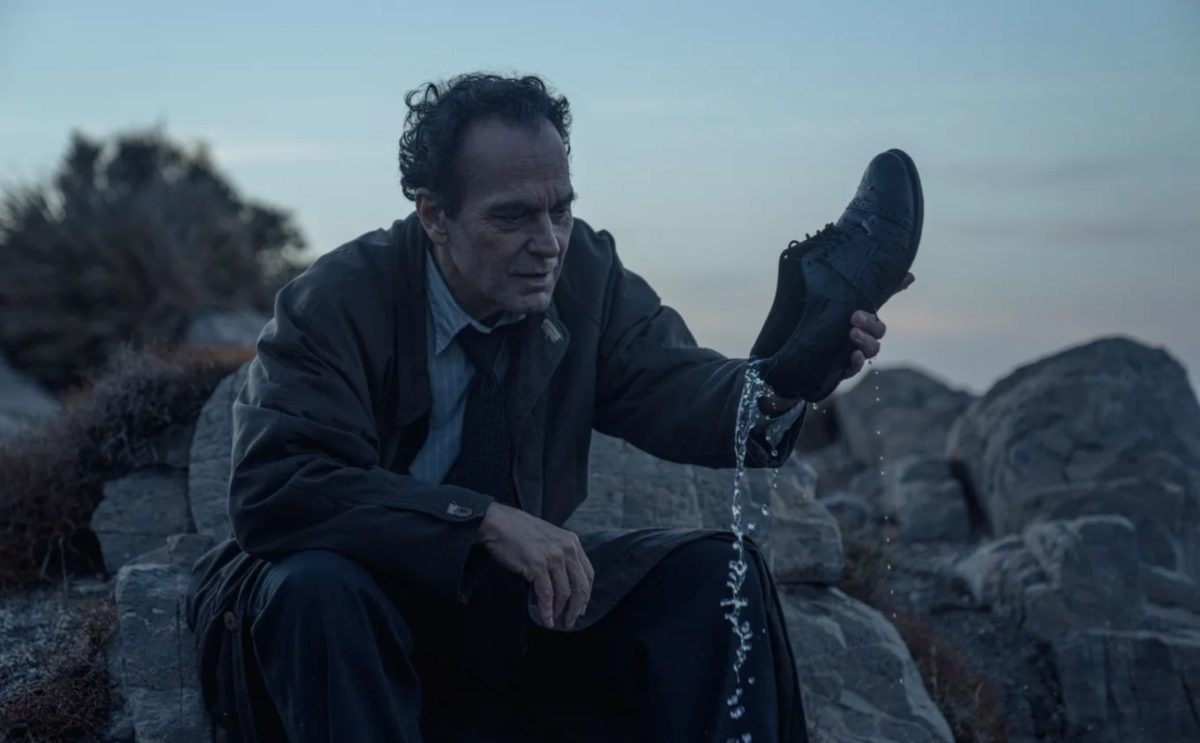
Curious, self-referential, and rich, Close Your Eyes has had a difficult passageway into the world, with its Cannes world premiere dogged by reports of conflicts over its runtime, its non-competition placement, and Erice’s own in-person boycott of the screening. Its final form also is a scarcely believable one, singular and self-possessed even amidst all the latter-day auteur work that’s screened in recent days: although it’s studded with other media, such as an unfinished film of Garay’s and trashy Spanish primetime TV, the main bulk is a pokily shot mystery “procedural,” told mainly in one-to-one dialogue scenes, shot in judicious singles with minimal coverage and muted lighting. But Erice is gradually able to accrete a rich character study of Garay and, yes, another meditation on the Grand Power of Cinema––not that we’re lacking in those at the moment––enriched by the fact that this theme, together with memory and longing, has long been the director’s modus operandi. – David K. (full review)
Dear Jassi (Tarsem Singh)
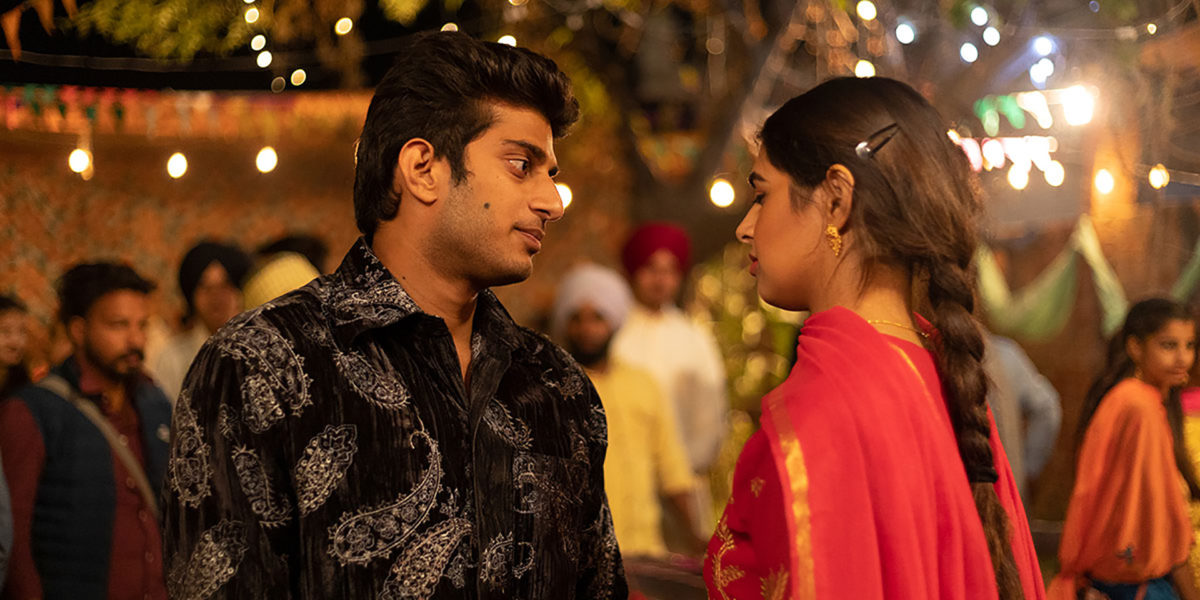
The quasi-narrator who bookends Tarsem Singh’s return to the big screen with the India-set Dear Jassi doesn’t quite know where to start his ripped-from-the-headlines true story-turned-folk-tale. His Juliet in the Canadian-raised Jassi (Pavia Sidhu), born to a good family that sends her back to their homeland to vacation with her cousin? His Romeo in the Punjabi-born but baptized Sikh, illiterate rickshaw driver / amateur athlete Mithu (Yugam Sood)? Or with the fateful meeting of these star-crossed lovers who serendipitously reside one street apart? – Jared M. (full review)
Eureka (Lisandro Alonso)
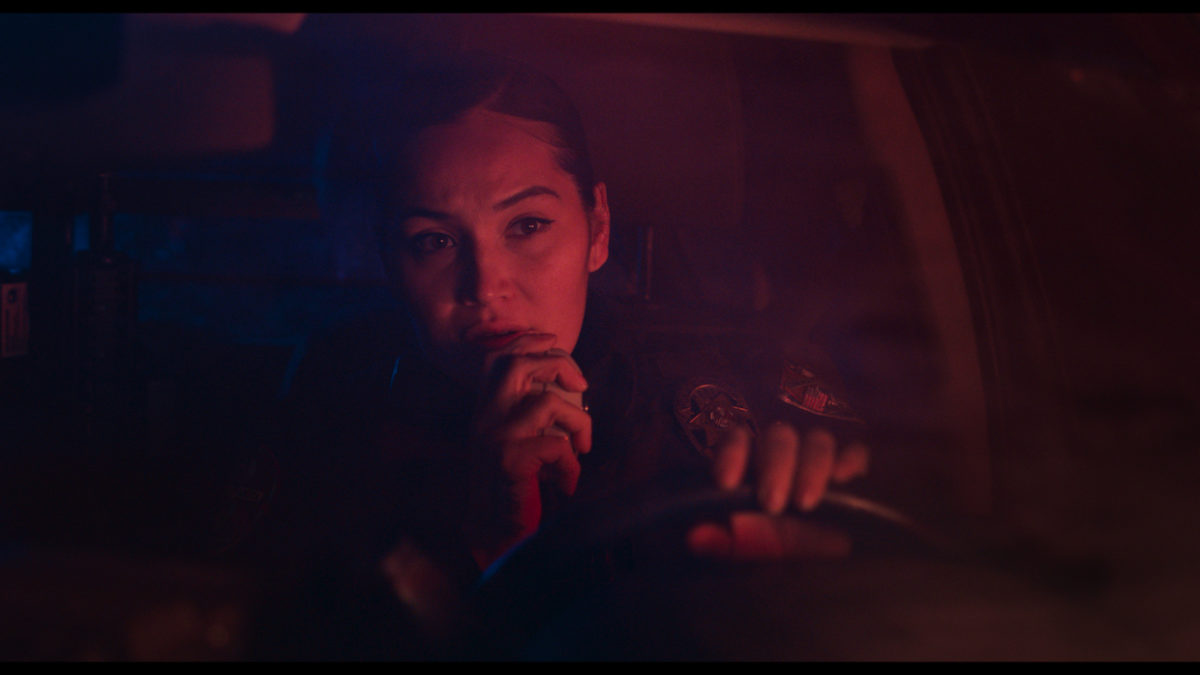
Nine years since that underground epiphany, along comes Eureka, a film that, for large chunks, seems to emerge from the same hallucinatory terrain Jauja opened up. Like all its predecessors, this unfurls as a literal journey dotted with solitary wanderers either searching for or mourning lost relatives. (“All families disappear eventually,” Gunnar was told down the cave, a line that might as well double as the director’s motto.) Old tropes and motifs notwithstanding, Alonso’s latest is his most ambitious: a tripartite film, Eureka sides not with the white strangers in strange lands that had long peopled Alonso’s oeuvre, but with the native communities facing these invaders. Its scope is ecumenical, its geography massive. In barest terms, Eureka’s designed to sponge something of, and locate parallels between, the experience of Indigenous communities stranded in three markedly different milieus: the Old West; South Dakota’s Pine Ridge Reservation in the present day; and finally the jungles of early-70s Brazil. – Leonardo G. (full review)
Explanation for Everything (Gábor Reisz)
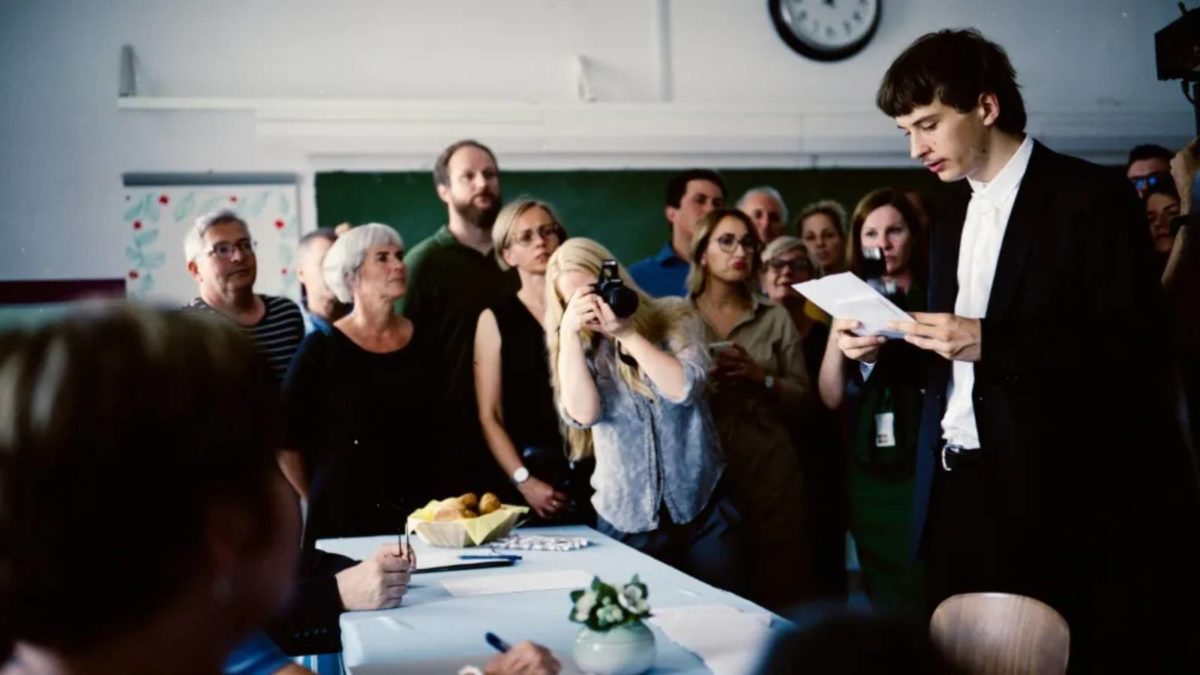
Politics are the enemy in Gábor Reisz’s Explanation for Everything, an ambitious, entertaining effort from the Hungarian filmmaker to address the crisis of divisiveness in his country. Filmed with little care for catering to audiences outside Hungary who may not grasp its political reference points––a welcome choice that lets viewers pick up on things as the film proceeds––Reisz gradually sets the scene for one small, key moment that snowballs into a national scandal. Starting out as an awkward comedy, the film builds itself up into one long, exasperated scream at the absurdity of how almost everything can be weaponized into political issues. – C.J. P. (full review)
Fancy Dance (Erica Tremblay)
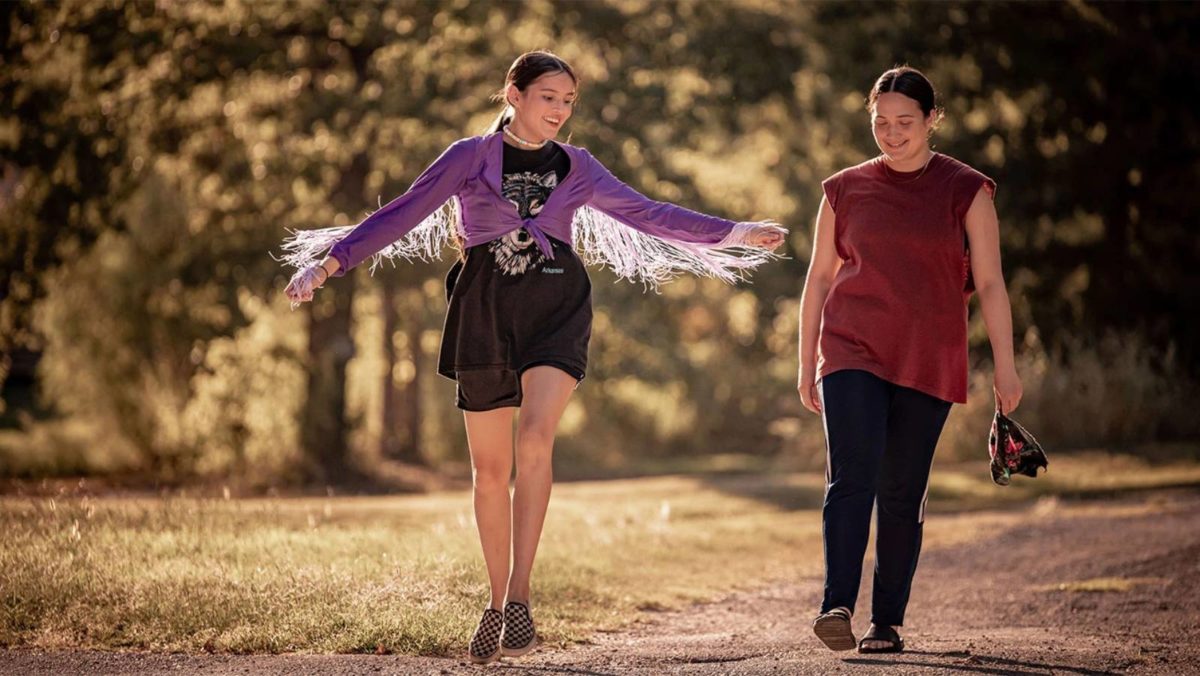
The narrative feature debut of Erica Tremblay traverses much of the same ground as other films set on and around reservations, highlighting poverty, a spirit to hustle, human trafficking, and the quagmire of political relations between sovereign nations. The domain of recent films like the dark thriller Catch the Fair One as well as Tracey Deer’s Beans and Lyle Mitchell Corbine Jr.’s Wild Indian, Fancy Dance also deserves recognition as a landmark of indigenous representation. Co-written by Tremblay and Miciana Alise, their thriller is grounded in the rhythms of everyday life, a little lighter than Catch the Fair One but bearing an equally devastating conclusion. – John F. (full review)
Flipside (Chris Wilcha)

Update: Picked up by Oscilloscope Pictures.
There is no surprise twist in Chris Wilcha’s Flipside, a documentary making its world premiere at the 2023 Toronto International Film Festival. This is not a true-crime doc or a story of unearthed family secrets. (Although there is lots of ephemera excavated after years of quasi-hoarding.) Instead of a twist, though, there is an audience awakening, one that takes a rather standard there-are-places-I-remember doc into surprisingly resonant territory. Ultimately, Flipside is a moving, funny, inventive film that may cause viewers to follow Wilcha’s lead and ask tough questions about their own lives. That is no small feat for a documentarian. – Chris S. (full review)
Forms of Forgetting (Burak Çevik)
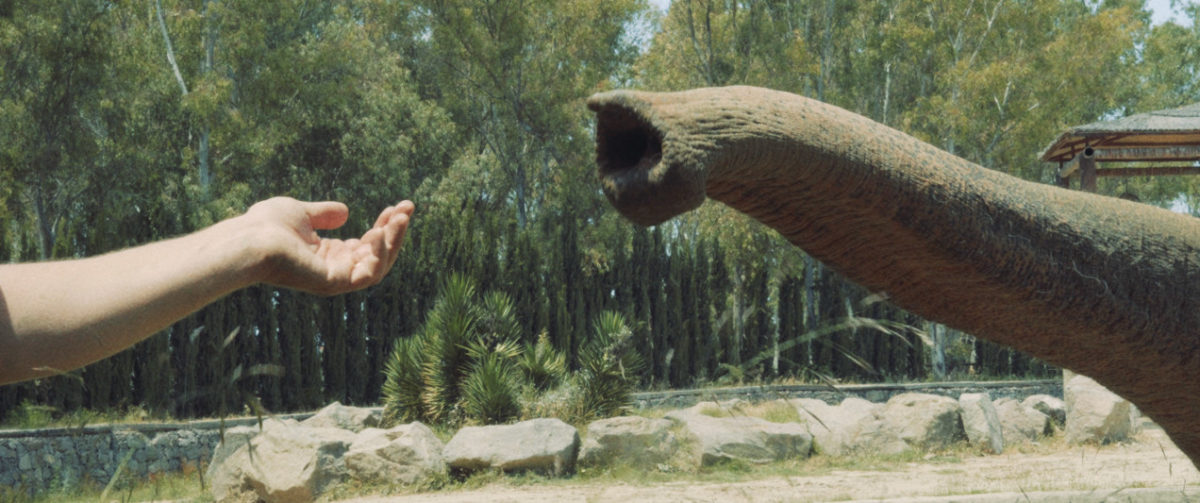
“The flower is what the seed forgets,” says one subject in Burak Çevik’s Forms of Forgetting, and it’s a line that succinctly summarizes what the film wants to explore. Starting with a former couple, Çevik has them watch old footage of themselves when they were together and provide commentary, which reveals the differences between their subjective recollections of their pasts. The film then finds other avenues to explore similar territory, and eventually ropes in the film itself, with Çevik’s plans to withhold screening the film again in his home country for 14 years. Forms of Forgetting doesn’t necessarily build to any sort of grand statement (in fact, the film appears to “forget” as it continues). It creates a space that ruminates on our own fallibility, how loss of memory is an inevitable part of moving forward in life. Çevik’s approach may take some time to adjust to, but the result is powerful and hard to shake. – C.J. P.
Gush (Fox Maxy)

If you get bored at any point during Gush, wait 10 seconds and the image and music will change to something completely different. Director Fox Maxy, making her feature debut, accomplishes something remarkable. At first glance Gush couldn’t feel more chronically online: a jittery montage of dancing, performance art, friends talking in their car, TV clips (threading a Naomi Campbell interview about her negative experiences in the modeling industry throughout), and pop remixes. Yet it’s cheerful and positive throughout. Even if Maxy’s aesthetic owes something to the rush of TikTok, she carefully foregrounds friendship and communal spaces. Gush avoids becoming exhausting by being so optimistic. – Steve E.
Hollywoodgate (Ibrahim Nash’at)

If you witnessed the chaos unfold in Kabul airport two years ago, it probably won’t come as much of a surprised to learn the US Army left a helicopter or two in Afghanistan. More alarming might be the news, calmly delivered at the start of this profoundly unreassuring documentary, that the cache of weapons and equipment that remains is estimated to be worth somewhere in the region of $7,000,000,000. In Hollywoodgate, an out-of-competition premiere at the Venice Film Festival this week, the Egyptian journalist and filmmaker Ibrahim Nash’at risks life and limb to achieve the improbable: nestling his way in with the Taliban fighters in charge of an abandoned U.S. base and observing their attempts to utilize what the Army left behind. “The Americans left us an enormous treasure,” one General observes; Nash’at’s film offers a worrying insight into what they might decide to do with it all. – Rory O. (full review)
Mademoiselle Kenopsia (Denis Côté)
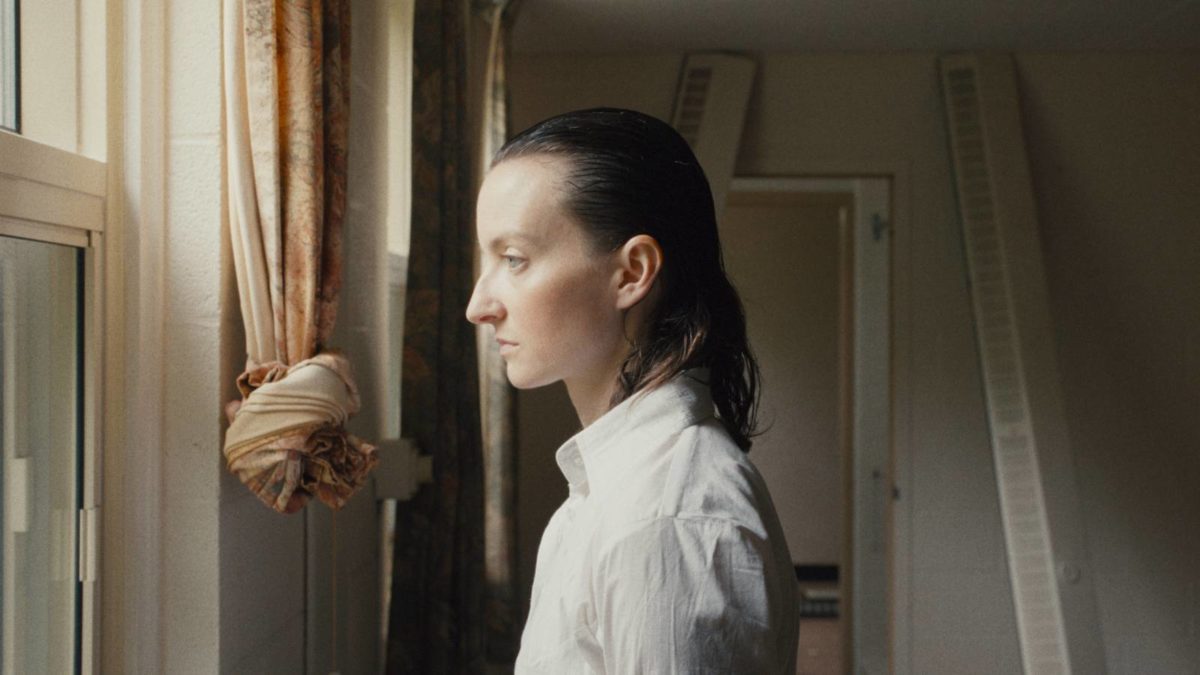
This writer is not necessarily fond of Quebecois director Denis Côté’s experiments, which oscillate between slow-cinema, documentary, and deeply unfunny deadpan comedies. Yet his newest film Mademoiselle Kenopsia, though highly self-conscious, is strangely effective, connecting for once his formal and thematic concerns––if simply because the experiment in “boredom” is put to a more pointed use than the easy festival requirements. – Ethan V. (full review)
Milisuthando (Milisuthando Bongela)
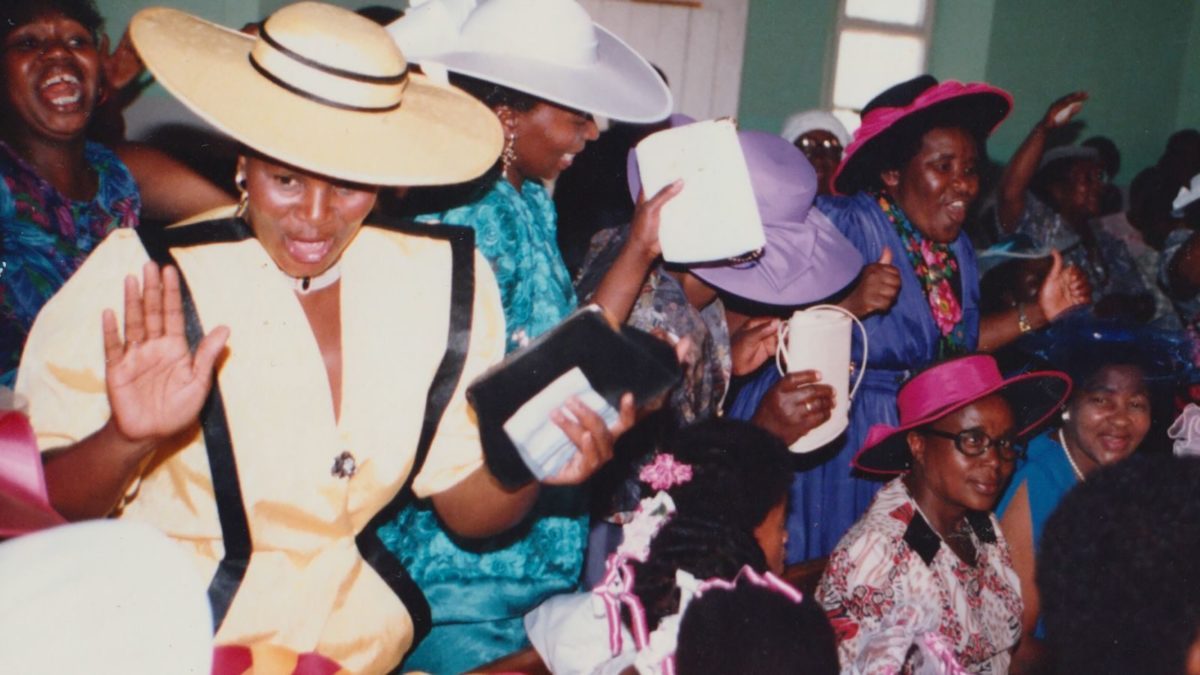
Conveying complex political and social issues through an immensely personal lens, Milisuthando Bongela’s debut feature is a sweeping, staggeringly original attempt to unpack the oppressive grip of apartheid in South Africa. Across its five chapters, some look back on history with a newfound awareness of a colonial past and its generational damage while others take a pared-down avant-garde approach in reckoning with the present and future by giving space to weighty conversations. Milisuthando is the kind of documentary that should be essential viewing––not only in American history classes, where apartheid is often a footnote, but in filmmaking education to show how the most affecting way to convey monumental struggle is through a singularly individual perspective. – Jordan R.
The Mother of All Lies (Asmae El Moudir)
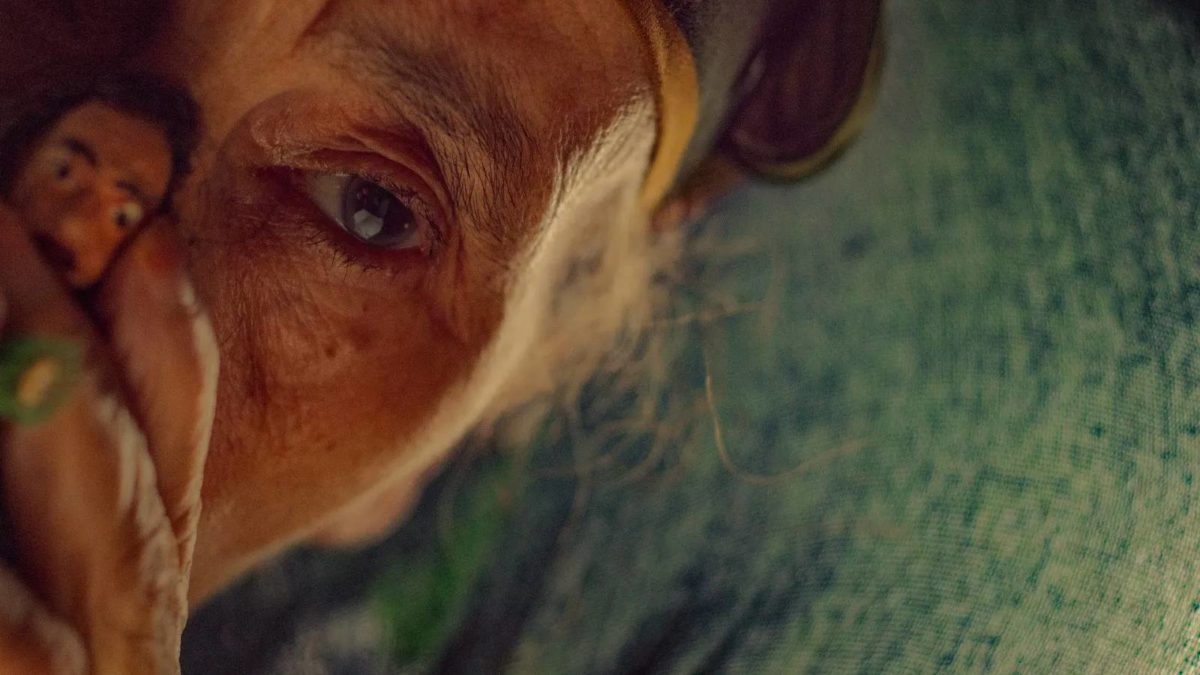
When the pain of the past is too raw to confront directly, some filmmakers have found artistic, inventive ways to convey tribulations in a form ripe for cinema. In the vein of the works of Rithy Panh, Asmae El Moudir’s directorial debut The Mother of All Lies features an imaginative, hand-crafted recreation of the filmmaker’s Casablanca neighborhood and home. The location forms the basis for which she divulges an aching narrative of the ways family can wound, even when they may not even be cognizant of their actions. – Jordan R.
Mountains (Monica Sorelle)
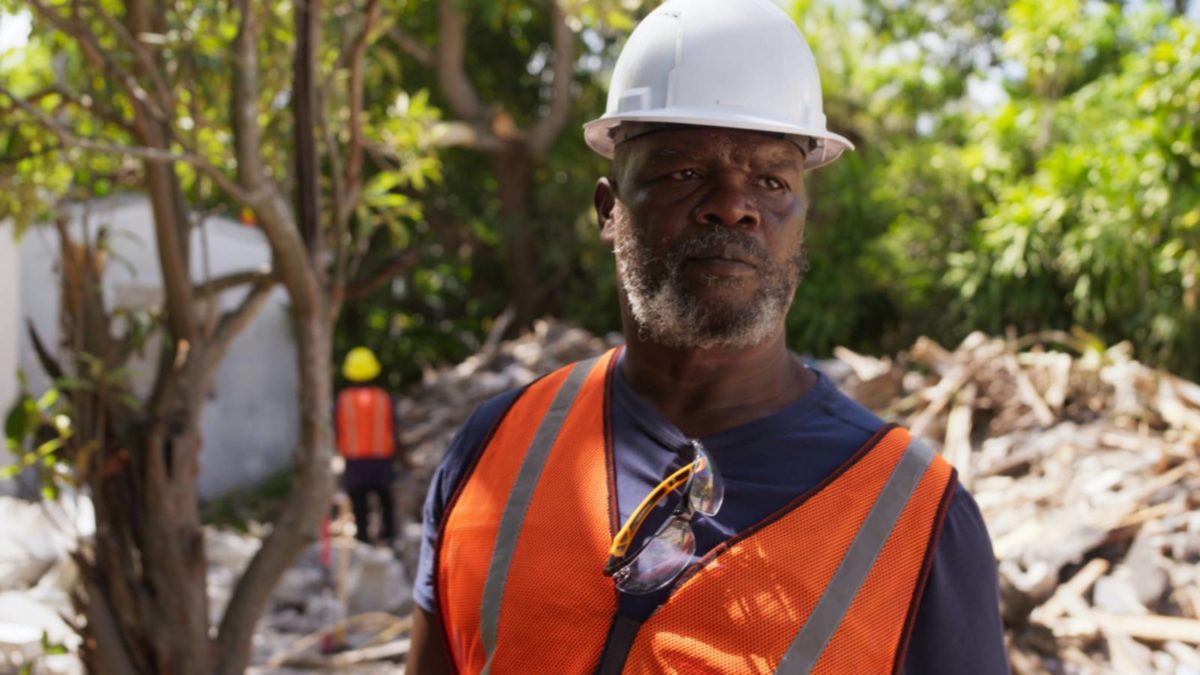
A low-key, poetic exploration of life’s ironies, Monica Sorelle’s feature debut Mountains frames the disappearance of Miami’s Little Haiti with a warm, compassionate gaze recalling the masters of social realism––akin to Roberto Rossellini with the touch of Ousmane Sembène’s lighter films. With a title drawn from a Haitian proverb “behind mountains there are mountains,” the film retains a light touch, somewhat more sad than mad as Little Haiti disappears in the city’s building boom. A modest dream home is unobtainable once the real estate vultures circle the neighborhood and Xavier Sr. (Atibon Nazaire), a demolition worker, plays a role in changing his neighborhood permanently, making way for young Whole Foods-shopping professionals to displace families and small businesses. – John F. (full review)
National Anthem (Luke Gilford)
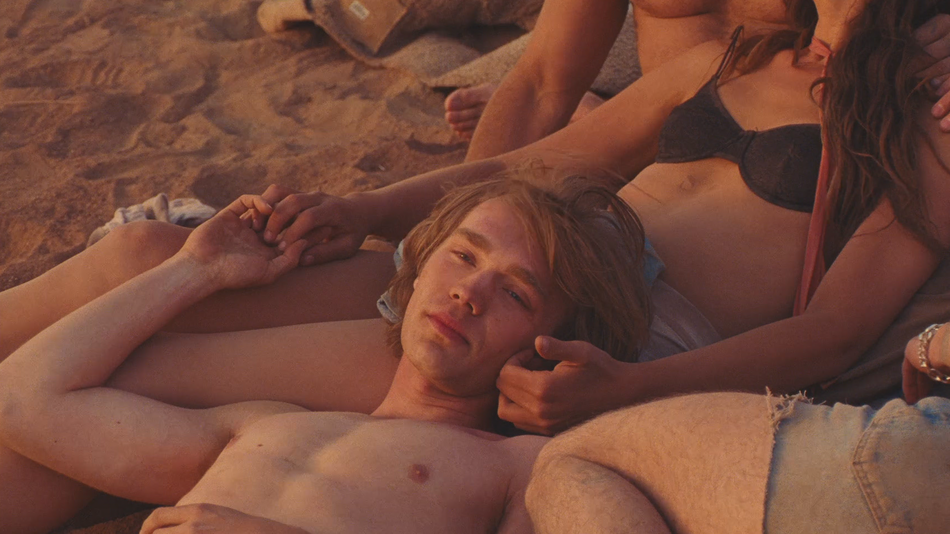
At the beginning of National Anthem, writer-director Luke Gilford’s exquisite-looking and subversive debut feature, 21-year-old Dylan (Charlie Plummer) lives a particularly burdensome and monotonous life. Within his small, rural, isolated New Mexico community he supports his family by shoveling gravel at temporary construction gigs and returns to his one-bedroom home to feed and take care of Cassidy (Joey DeLeon), his younger brother. Most nights his alcoholic hairdresser mother goes out late and returns home with drunken flings, forcing her two sons to sleep on the couch. It’s a difficult, lonely existence, and throughout his primary caretaking Dylan sees no opportunity to escape. – Jake K-S (full review)
The Night Visitors (Michael Gitlin)

World-premiering as part of New York Film Festival’s Currents section this past fall, Michael Gitlin’s The Night Visitors takes a playful, beautiful, mysterious look at the world of moths. Far from the standard documentary one might be forced to view in a high school class, the film uses an essayistic approach unbound by standard form to explore the insects, with stunning macro cinematography taking a detailed look at their biology, as well as a deep dive into how they’ve been perceived by humans throughout history. – Jordan R.
Pamfir (Dmytro Sukholytkyy-Sobchuk)
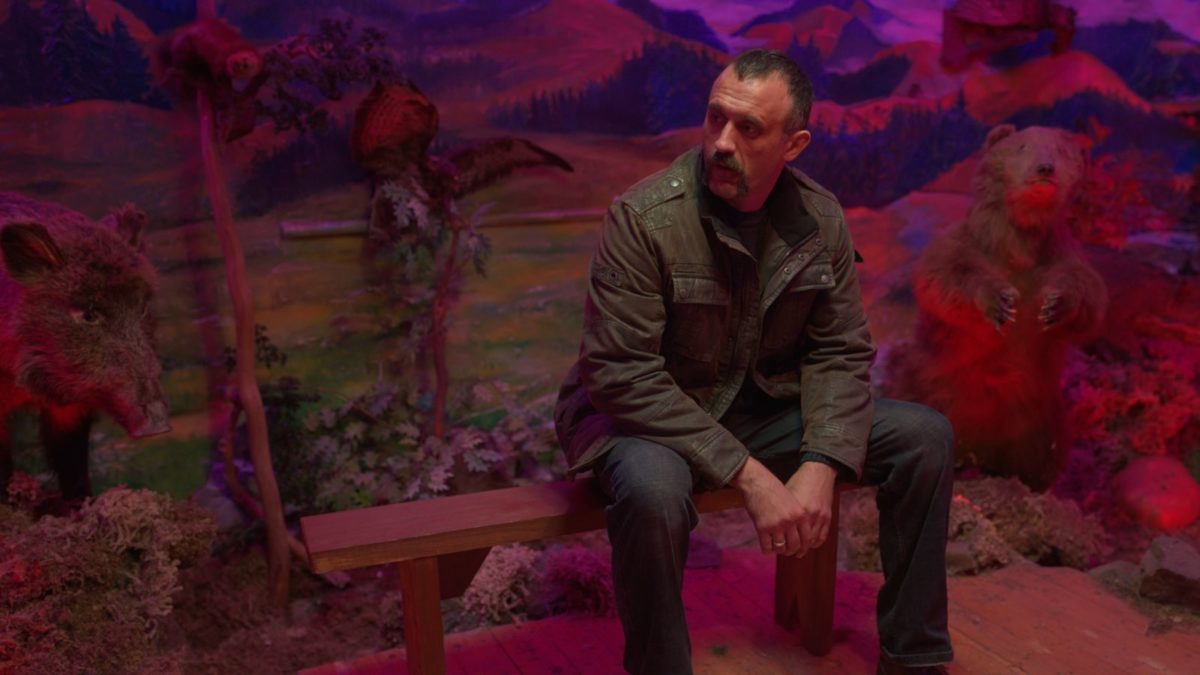
A riveting father-son story set in the criminal world of smuggling on the edge of the Ukrainian border, Dmytro Sukholytkyy-Sobchuk’s debut Pamfir has a remarkable sense of location. Astonishing tracking shots center on our foreboding lead Leonid (Oleksandr Yatsentyuk) as he picks up the pieces of his life to make ends meet for his family. There’s a lived-in sensibility to its world, giving space for raw, unfiltered emotions to play out in regard to regrettable decisions our characters make in a bid both for survival and a familial connection. – Jordan R.
Playland (Georden West)
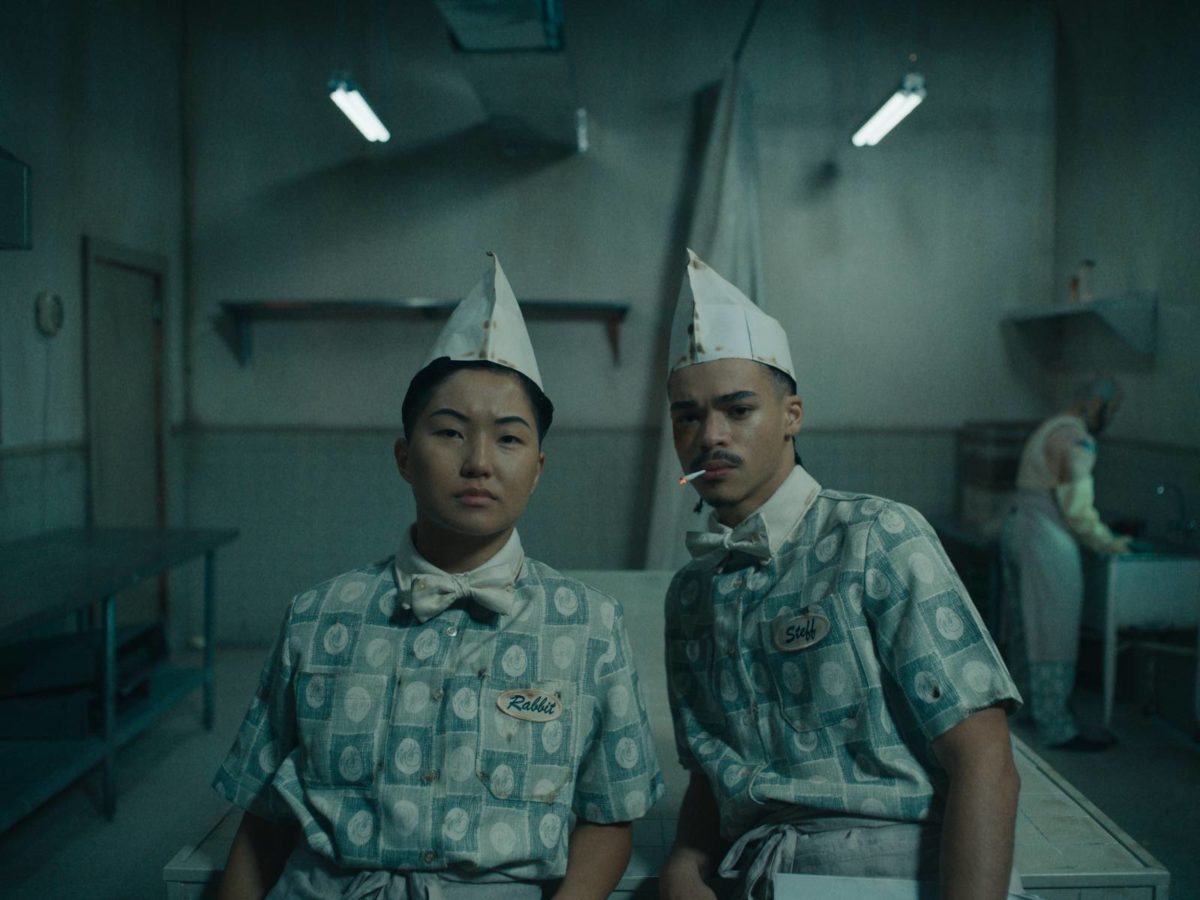
Update: Acquired by Juno Films for a spring release.
The only exterior shot Playland shows of the iconic Boston gay dive that lends the film its name is a black-and-white photograph slotted seconds before the end credits. Established in 1937, the Playland was the city’s oldest gay bar and served as a crucial queer hub until 1998, when the owners surrendered to Boston’s “urban renewal” projects and the building turned to rubble. Never once does writer-director-editor Georden West beckon us outside its premises. From the minute the camera first glides across dust-covered tables to the monochrome pictures with which it closes, West’s feature debut reconstructs the dive and keeps us locked inside. It’s the night before demolition, and what unfurls is a kind of farewell ceremony as owner Lady (Danielle Cooper), decked head-to-toe in black leather, travels across sixty years of Playland’s history to conjure the ghosts of a few regulars for one final call. “A play presented by” Lady and bartender Viv (Constance Cooper), per the title card, Playland is best thought of as a seance, a communion with a lost place and its denizens that pointedly refuses to drown everything in formaldehyde, and it brings bar and patrons to life with infectious, raucous energy. This is not an obituary; it’s a resurrection. – Leonardo G. (full review)
The Plough (Philippe Garrel)
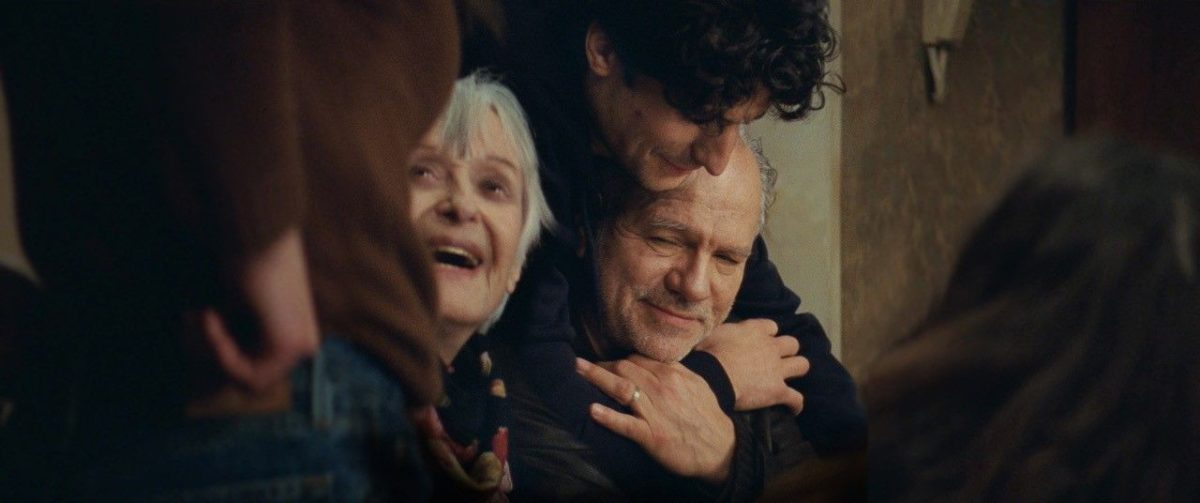
In 1947, ten years before becoming an actor, Philippe Garrel’s father, Maurice, joined a company of puppeteers. That piece of history is like a well of inspiration in The Plough, Garrel’s latest cinematic family affair and a film as effortless as they come. It stars all three of Philippe’s children––Louie, Lena, and Esther––as brother and sisters; the patriarch role is filled by Louie’s godfather, Aurélien Recoing, whose own father worked alongside Maurice all those years ago. The grandmother is played by Francine Bergé––no relation, but maybe the performance of the lot. A briskly charming, bracingly anachronistic, sometimes achingly sensual film, it tracks the company in their late halcyon days as well as the siblings’ strained attempts to keep things going once their father dies. – Rory O. (full review)
La Práctica (Martín Rejtman)
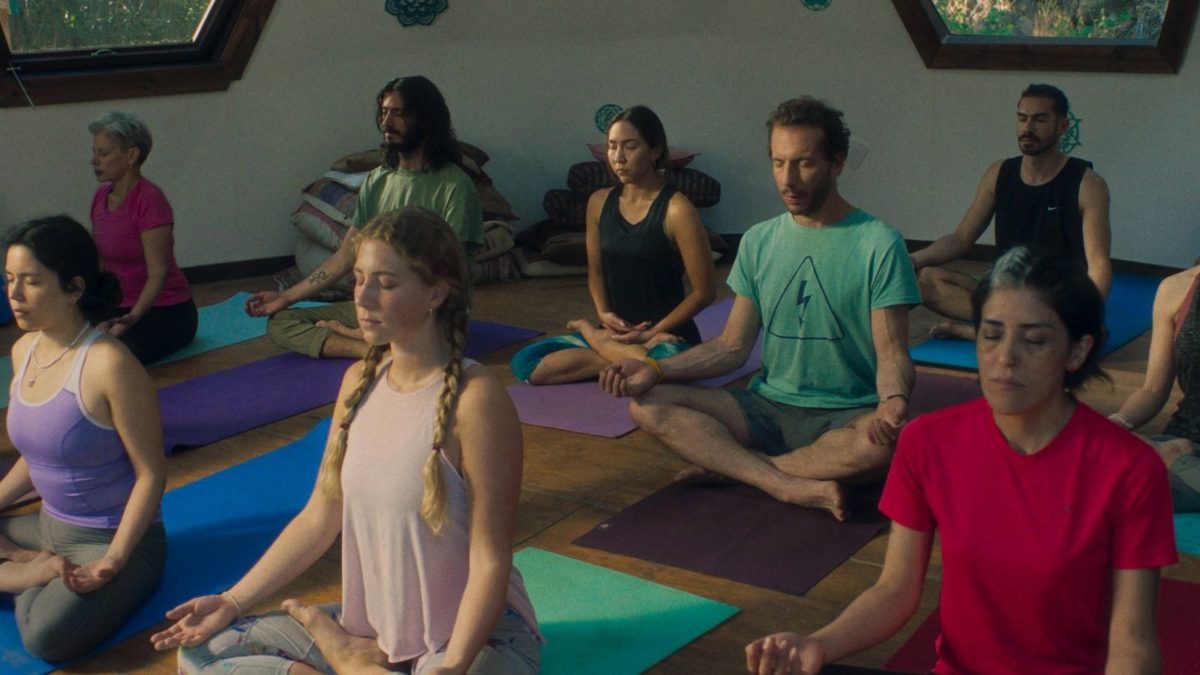
The near-decade since Two Shots Fired hasn’t found Martín Rejtman losing a step. La Práctica continues his reign as Argentina’s purveyor of mirthful chuckles, a patient and absurdity-spotted lens now trained on the lives of recently divorced yoga practitioners navigating dating, business, and the indignities of getting old. Not the most thrilling synopsis, I know, but it’s a concept of which Rejtman takes every advantage: running gags, sharp images lit with a kind of soft opulence, and above all a great study in what happens when you put three different types of guy in the same room. American distribution’s never been so easy for Rejtman to snag, and thus there’s good chance you’ve not yet slipped into his world. But I can ensure La Práctica is a proper first look at an unsung master. – Nick N. (full review)
Ramona (Victoria Linares Villegas)
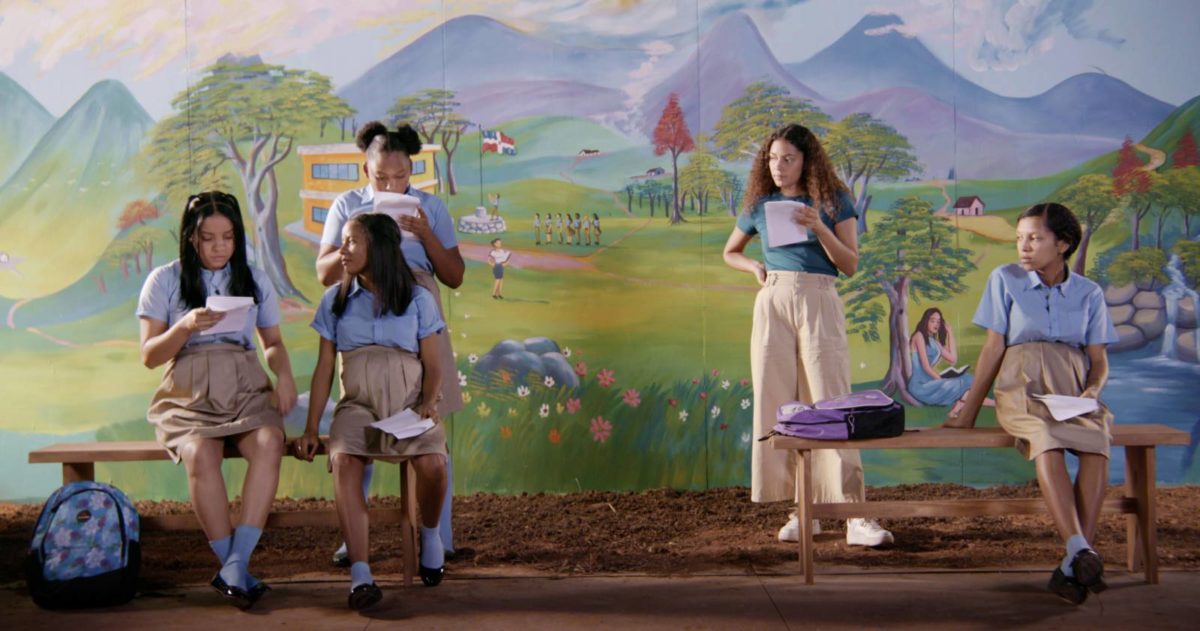
What is the criteria for playing a character based on a factual person? How much artistic license is granted toward playing such a character in a fiction piece? Should an actor portray said character based on the knowledge or experience required for the role? Those are the ethical dilemmas at play in Victoria Linares Villegas’ sophomore feature Ramona. In the originally planned, COVID-thwarted fiction film, actor and casting director Camilla Santana plays the eponymous girl, a pregnant woman amidst the teen pregnancy epidemic in the Dominican Republic. – Edward F. (full review)
Samsara (Lois Patiño)

“Did you know that we keep on hearing after we’re dead?” The question comes up early into Lois Patiño’s Samsara but haunts the film from first shot to last, doubling as a précis of the multisensory feast this extraordinary journey through bodies, time, and space packs throughout. “Watching” is too restrictive a word for the kind of experience Patiño has arranged. Here’s the rare film that invites your whole body into its universe––one whose haptic, aural, olfactive pleasures are just as vivid as its visual riches. It’s a tale that unspools as a Heraclitean river: you cannot step into it twice, for it is not the same film, and you are no longer the same person. – Leonardo G. (full review)
The Taste of Mango (Chloe Abrahams)

One of the strongest debut features of the year, Chloe Abrahams’ documentary The Taste of Mango unweaves a tangled web of familial strife as it relates to the filmmaker’s mother and grandmother. In unpacking these traumas that festered under the surface for decades, Abrahams conveys a surprisingly ethereal, poetic tone aided by Suren Seneviratne’s score. For examining such difficult issues of violence and assault, The Taste of Mango finds the hopeful outcome in picking up the pieces to form stronger bonds with those you cherish. – Jordan R.
Together 99 (Lukas Moodysson)

The idyllic dream of leftist commune living, where resources and skills are shared for the greater good, needs a key ingredient to work: people. Two decades after Lukas Moodysson’s Together captured such a Stockholm community, we return to the lives of those we last saw in the 1970s––or in 2000, if you’re going by the film’s release––and the commune is running on fumes, comprising only Göran (Gustaf Hammarsten) and sole companion Klasse (Shanti Roney). As we’re introduced to the two discussing various economics and chores of their rather lonely way of life, it’s as dryly hilarious an opening as one could dream of, but the Swedish director knows this small-scale conceit isn’t wholly sustainable. Soon enough, many familiar (and some new) faces return for our lead’s 60th birthday celebration in a reunion that, not unlike the similar gap in Twin Peaks, conjures questions of shattered ideals, rekindled romances, unhealed wounds, and the terrors of aging. – Jordan R. (full review)
More Recommended Films Seeking U.S. Distribution
- AGGRO DR1FT
- Bad Living
- Chasing Chasing Amy
- Dad & Step-Dad
- Family Time
- The Featherweight
- He Thought He Died
- Hummingbirds
- I Don’t Know Who You Are
- New Strains
- Nowhere Near
- Q
- The Queen of My Dreams
- Red Herring
- Seven Veils
- Sira
- Sobre todo de noche
- We No Longer Prefer Mountains
